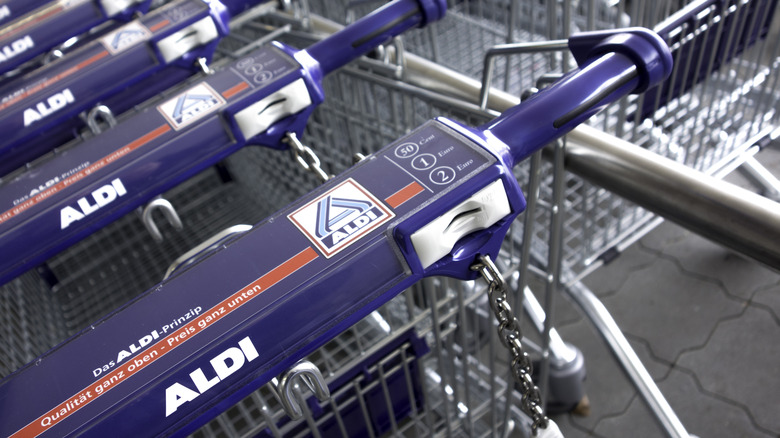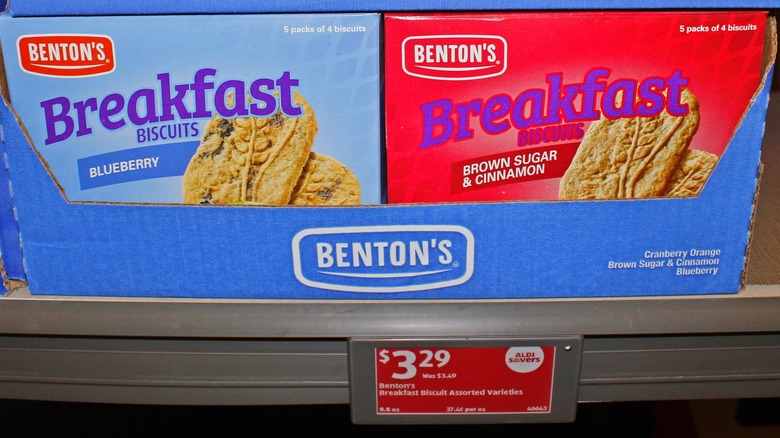Why Aldi Will Soon Have Some New Price Tags And What It Means For Shoppers
At Aldi, there are a few key differences compared to other supermarkets that help preserve Aldi's famed low prices. You won't find many name brands in the store's inventory, for instance, and getting a shopping cart requires the use of a quarter to ensure that you return the cart to its corral. There's a new way that Aldi is joining its grocery store peers in the 21st century, however. That's with new electronic shelf labels (ESLs), meant to replace paper price tags on shelves. Walmart is just one of the major grocers that has already started using ESLs, claiming they are major time-savers that cut back on time spent by employees manually changing price tags.
Aldi's specific ESLs are primarily integrated for use with the Instacart app. Instacart is rolling out its proprietary electronic Carrot Tags at a number of grocers besides Aldi, including Schnucks, Gelson's, and Hornbacher's. With Carrot Tags, Instacart shoppers can make the ESL on a certain product light up, ensuring that they shop the correct item when fulfilling orders.
The grocery delivery industry is clearly growing, and integrated tools like Carrot Tags make the process faster and more user-friendly. Furthermore, Carrot Tags have widespread functionality that extends to all shoppers, with the capacity to display dietary information or certifications like kosher or halal. However, there are concerns that the use of ESLs won't be confined to changes that benefit consumers.
Where do ESLs fit in Aldi shoppers' big picture?
You probably already have a mental list of the best and worst products to buy at Aldi based on quality and price. What happens to your mental calculus, however, if the prices are always changing? Some consumers have voiced concerns that grocers like Aldi will abuse the ability to quickly and easily modify pricing — such as implementing surge pricing on groceries. In a state like Florida, which is currently home to the most Aldi stores in the country, retailers could theoretically jack up prices before an approaching hurricane when shoppers are flocking to fill their pantries. Kroger is just one store that has already faced accusations of opportunistically raising prices via ESLs.
However, Instacart has been quick to state that while the ESLs do support dynamic pricing, this does not have to spell negative effects for the consumer. As opposed to surge pricing, where prices increase, dynamic pricing can also mean that flash sales happen depending on excess inventory or other changing conditions. Given that Aldi customers are likely very familiar with the MSRP of their favorite store brands, it's doubtful that the supermarket brand will get away with very many pricing shenanigans — at least not without tremendous public outcry.

